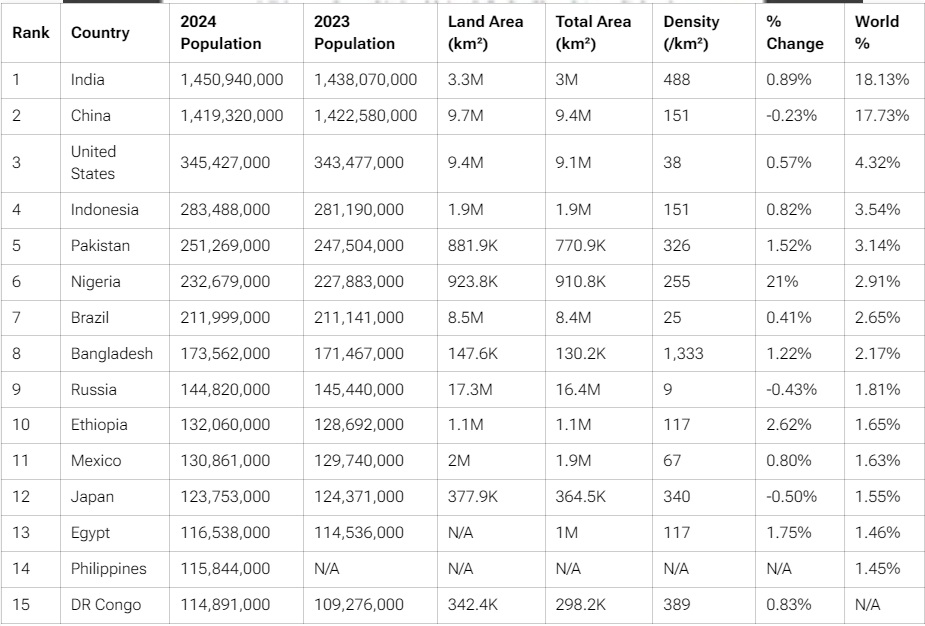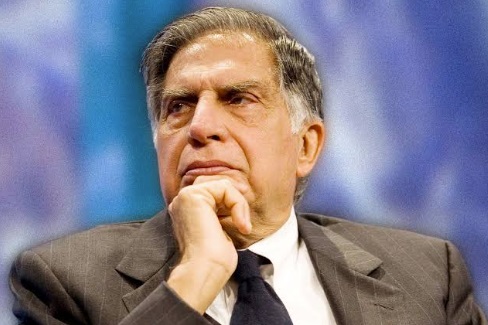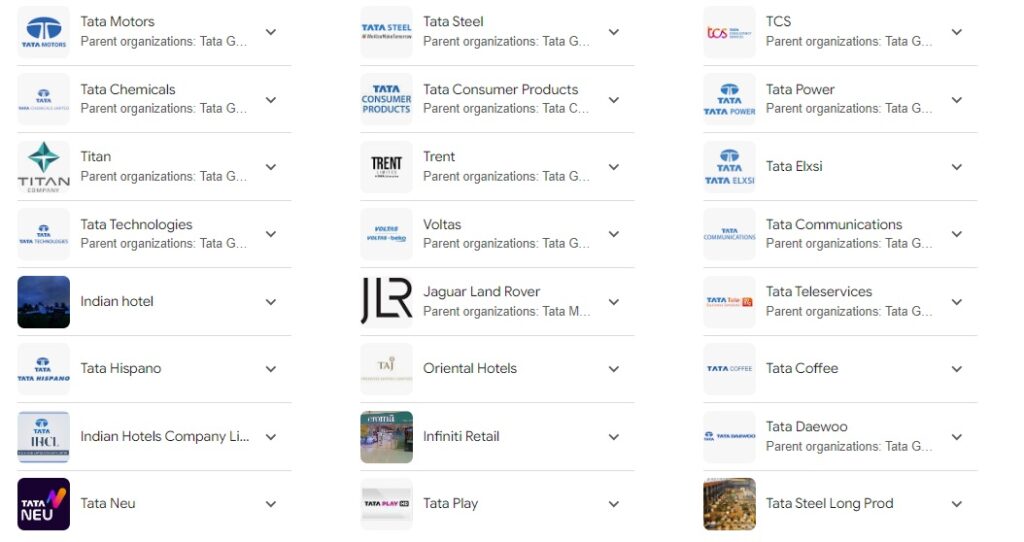World's Population as on 2024

Population Growth in Developing Countries
- High Birth Rates: Countries like India and Nigeria are witnessing rapid population growth due to higher birth rates and youthful demographics. This growth can lead to a demographic dividend, where a larger working-age population can drive economic growth if properly harnessed.
- Urbanization: Many developing nations are experiencing rapid urbanization as people move to cities for better opportunities. This shift presents both challenges (such as housing, infrastructure, and job creation) and opportunities (economic development and innovation).
Challenges in Developed Countries
- Aging Populations: Nations like China and Russia are grappling with aging populations, which strain social services, healthcare, and pension systems. As the working-age population declines, these countries may face labor shortages and increased dependency ratios.
- Declining Birth Rates: Factors contributing to lower birth rates include economic pressures, changing social norms, and increased access to education and employment for women. Policymakers in these countries need to encourage family growth through incentives and support systems.
Sustainable Solutions
- Education and Employment: Investing in education and job training can empower young people in growing populations to contribute positively to their economies. For aging populations, upskilling older workers can help maintain their productivity.
- Healthcare Services: Expanding access to healthcare is crucial for both young and aging populations. Developing countries need to build healthcare infrastructure to cater to growing populations, while developed countries must ensure adequate healthcare for the elderly.
- Migration Policies: Strategic migration policies can help balance population distribution. For example, countries facing labor shortages can benefit from skilled immigration, while nations with high youth populations might see a reduction in unemployment through overseas job opportunities.
Global Collaboration
- International Cooperation: Addressing population challenges requires collaboration among governments, NGOs, and international organizations. Sharing best practices, technologies, and resources can foster sustainable solutions.
- Sustainable Development Goals (SDGs): The United Nations’ SDGs emphasize the need for inclusive and sustainable economic growth, which can help address the disparities created by population changes.
Conclusion
As the world grapples with these demographic shifts, it is essential for governments and organizations to adopt proactive and innovative strategies. By addressing the unique needs of both growing and aging populations, societies can create a balanced and sustainable future for all.
My Stories & news
Sir Ratan Naval Tata - The Tycoon Of India

Philanthropy
- Ratan Tata is known for his philanthropic efforts, particularly in education, healthcare, and rural development through the Tata Trusts, which own two-thirds of Tata Sons.
Legacy
- He is celebrated for his vision, ethical leadership, and commitment to social responsibility. After stepping down as chairman in 2012, he has remained active in various philanthropic and entrepreneurial ventures.
Sir Ratan Tata, born on December 28, 1937, is an Indian industrialist and the former chairman of Tata Sons, the holding company of the Tata Group, one of India’s largest and oldest conglomerates.
Early Life and Education
- Birth: He was born in Mumbai into the prominent Tata family.
- Education: Ratan studied architecture at Cornell University and later pursued advanced management at Harvard Business School.
Career
- Tata Group: He joined the Tata Group in 1962 and became chairman in 1991. Under his leadership, the group expanded significantly, diversifying into various sectors including IT, automobiles, and steel.
- Global Expansion: He was instrumental in the international expansion of the Tata Group, overseeing landmark acquisitions like Jaguar Land Rover and Corus Steel.
Personal Life
- Ratan Tata is known for his private lifestyle and has never married. He is passionate about aviation and has a keen interest in dogs, particularly in supporting animal welfare.
COMPANY ASSOCIATED WITH RATAN TATA

Our Tribute To Sir Ratan Tata
Today, we remember Sir Ratan Tata, a visionary leader whose profound impact on the world of business and society will be felt for generations to come. His unwavering commitment to ethical leadership and social responsibility set a benchmark for corporate India.
Ratan Tata’s legacy transcends the boundaries of the Tata Group; it embodies a spirit of innovation, compassion, and integrity. He championed diversity and inclusivity, believing that business should serve the greater good. His philanthropic endeavors through the Tata Trusts have transformed countless lives, reflecting his deep-rooted belief in giving back to society.
As we honor his remarkable journey, we celebrate a life dedicated to uplifting others and redefining the role of business in a changing world. His wisdom and humility will forever inspire us. Rest in peace, Sir Ratan Tata. Your legacy will live on in our hearts and actions.

As we seen the population, India do not have any control on it.